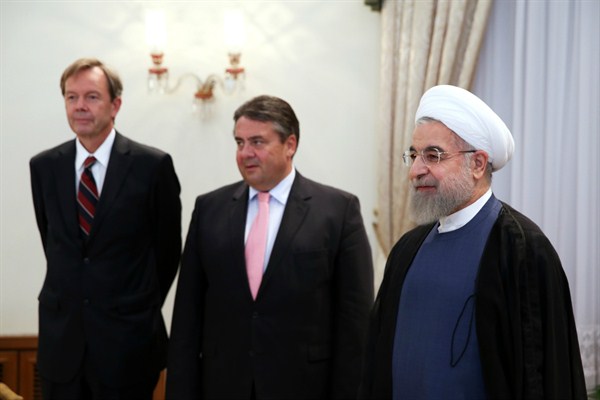Over the last two years, the notion that the impasse over Iran's nuclear program could be solved has gone from being a theoretical possibility to becoming a reality, with the landmark agreement between Tehran and six world powers. The potential lifting of Western economic sanctions on Iran has, in turn, quickly boosted interest in the Iranian economy, especially in Europe, which sees a market re-emerging with significant potential, ready for international investments, technology and goods.
But in a somewhat contradictory way, the Iranian economy has both been underestimated during the last five years of sanctions, and now runs the risk of its short-term prospects for growth being overplayed. The underestimation has to do with the Western narrative of how badly the Iranian economy was hit by sanctions and how marginalized Iran was politically due to its controversial nuclear program. But the truth is that while the Iranian economy was severely affected by the sanctions regime, it was not crippled. Like many other cases of sanctioned countries, it adapted and muddled through. Iran is still among the world’s top 20 producers of many metals; it produces more steel than France or the U.K. Mobile and Internet penetration rates have continued to increase, surpassing Turkey and Brazil. Iran is also one of the top five producers of cement in the world. And while oil production has been severely impacted by the sanctions, Iran has actually managed to achieve marginal excess gas production during the past few years.
In short, faced with sanctions, the economy and the state substituted, re-prioritized and compensated rather than allow or accept an outright vacuum of technology or goods. Similarly, Iran's isolation from the rest of the world was neither as clear-cut nor hermetic as Western powers would like to believe. Although the economy was and is underperforming, it is not in as dire shape as some observers like to claim. In essence, its baseline is underestimated.

